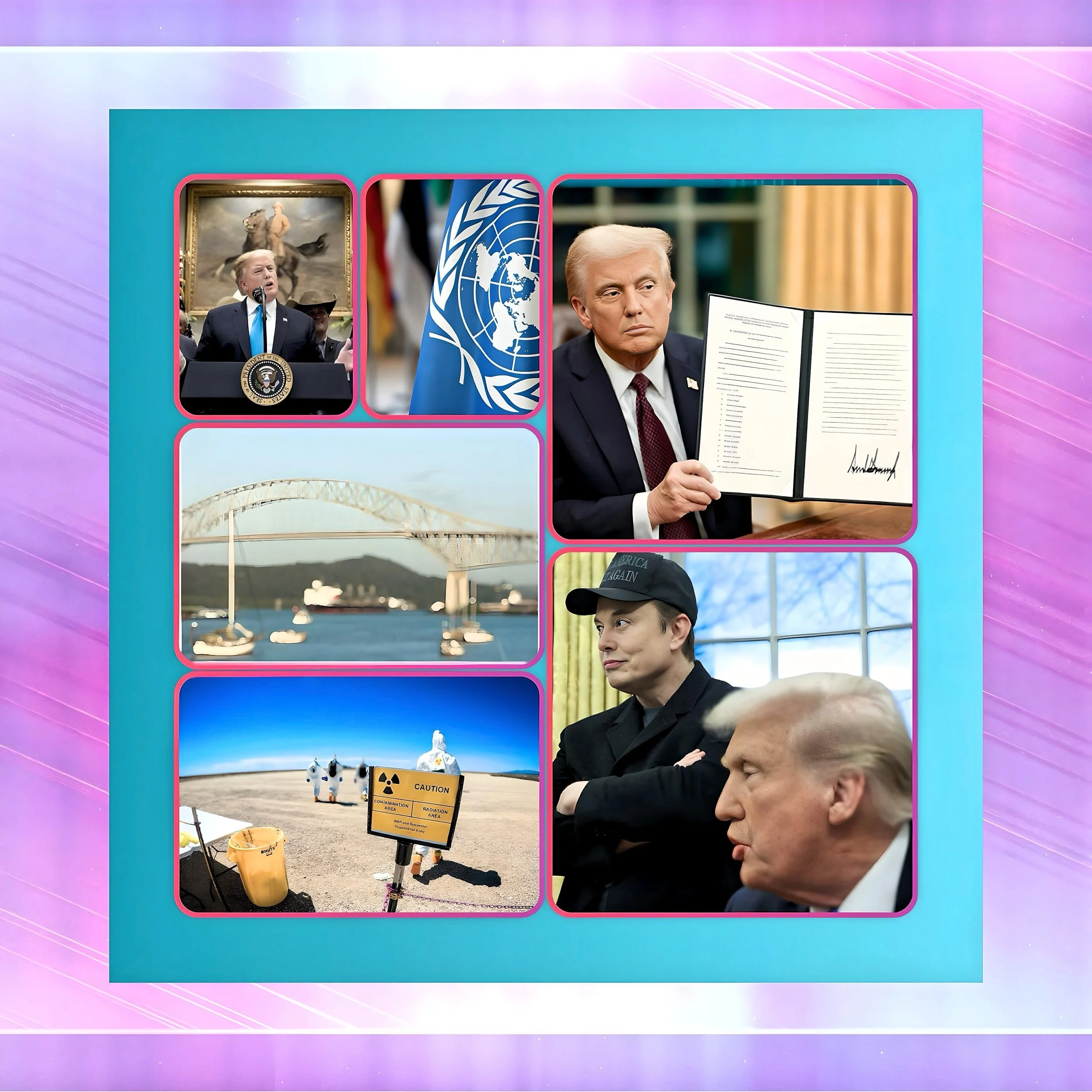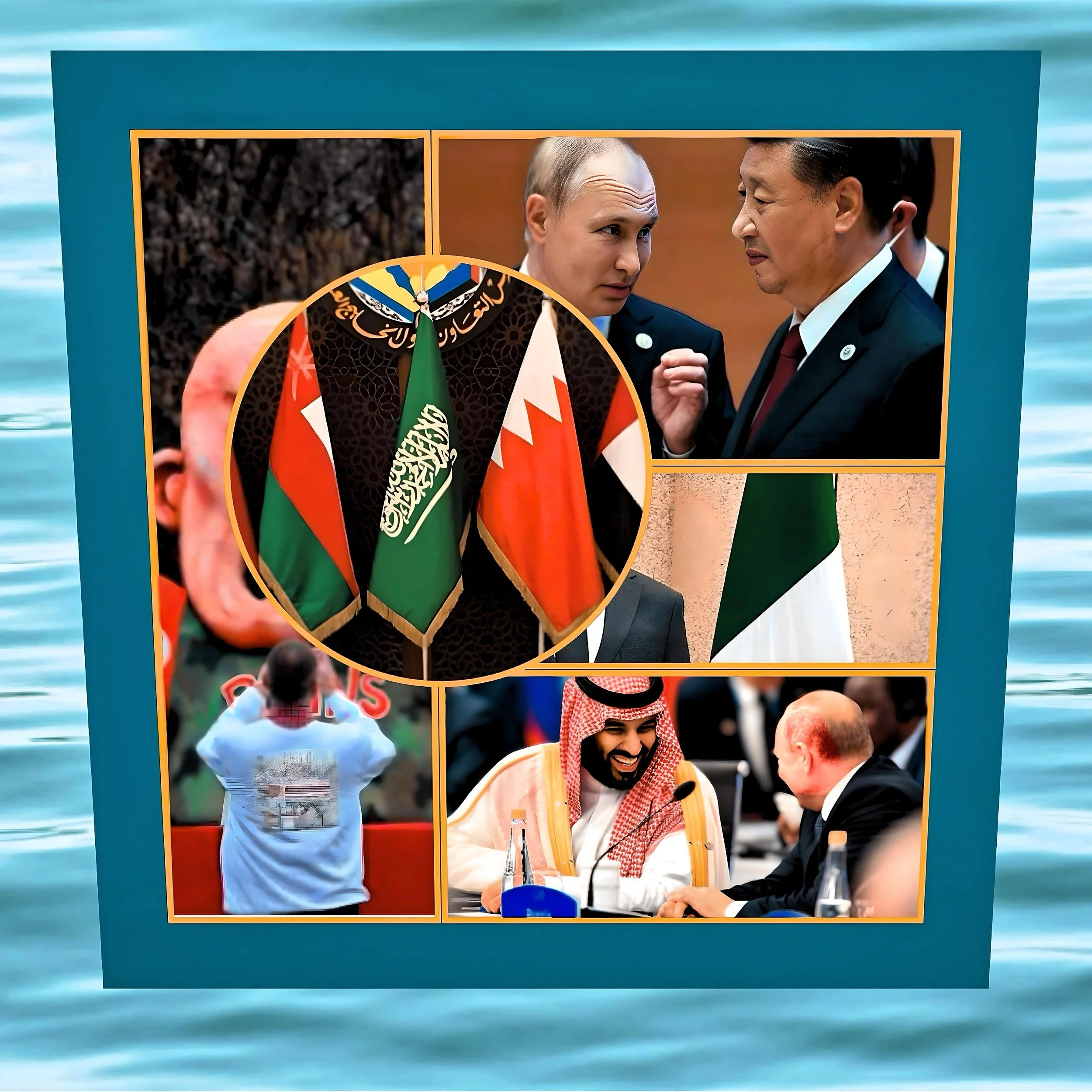Trump’s Proposed Economic Rapprochement With Russia: A Strategic Miscalculation
Introduction
The Trump administration’s pursuit of economic rapprochement with Russia, framed as a pathway to resolve the Ukraine conflict and unlock “historic opportunities,” represents a perilous gamble that misreads Russia’s strategic intentions and its economy's structural vulnerabilities.
Despite claims that lifting sanctions and reintegrating Russia into global markets would benefit U.S. businesses and stabilize geopolitical tensions, this approach risks emboldening an authoritarian regime, undermining transatlantic alliances, and sacrificing long-term security for illusory short-term gains.
This report analyzes Russia’s economic fragility, Western businesses' reluctance to reinvest, and the broader geopolitical consequences of appeasement to argue that Trump’s proposed reset is wrongheaded and dangerously shortsighted.
Historical Context: Cycles of Engagement and Disillusionment
The Legacy of Failed Reset Attempts
U.S.-Russia relations have oscillated between cautious cooperation and confrontation since the Cold War, with each “reset” failing to address underlying asymmetries in power and intent.
The Trump administration’s tenure from 2017 to 2021 exemplified this pattern: despite initial overtures, including Trump’s controversial 2018 Helsinki summit with Vladimir Putin, relations deteriorated over election interference, Ukraine sanctions, and Nord Stream 2 disputes.
These efforts collapsed due to Russia’s entrenched adversarial posture, exemplified by its annexation of Crimea, cyberattacks, and support for Syrian dictator Bashar al-Assad.
The current push for rapprochement repeats past mistakes, prioritizing transactional deals over accountability for Russia’s invasion of Ukraine and its systematic violations of international law.
Sanctions as a Tool of Containment
Since 2014, Western sanctions have targeted Russia’s financial, energy, and defense sectors, aiming to curb its aggression.
By 2025, these measures had forced Russia to divert 3.2 trillion rubles ($37 billion) annually to debt servicing—40% more than in 2023—while war-related spending consumed 60% of its federal budget.
Though Russia’s GDP grew through inflated military expenditures, this growth is unsustainable, relying on shadow economies and Chinese lifelines rather than productive sectors.
Lifting sanctions prematurely would relieve this pressure, allowing Moscow to rebuild its war machine and resume destabilizing activities.
The Illusion of Russian Economic Opportunity
Structural Weaknesses and War-Driven Distortions
Russia’s economy, contributing just 1.7% of global GDP pre-invasion, remains structurally hindered by sanctions, capital flight, and brain drainPivotal
Key industries, from automotive to tech, have regressed to Soviet-era isolationism, with Renault’s seized assets repurposed for substandard military production.
Once a pillar of growth, the energy sector faces declining European demand and competition from U.S. LNG, reducing its leverage even if sanctions were lifted.
Russia’s reliance on state-controlled enterprises, rampant corruption, and lack of property rights would deter meaningful foreign investment.
As Edward Verona, a former head of the U.S.-Russia Business Council, notes, “Russia’s business environment resembles an organized crime syndicate more than a market economy.”
Corporate Reluctance: Lessons From the Exodus
Over 1,000 Western firms exited Russia after 2022, suffering $300 billion in losses from asset seizures and forced sales.
Companies like Danone and Carlsberg saw subsidiaries nationalized overnight, while others faced arbitrary fines and regulatory harassment.
These experiences have instilled deep skepticism: a 2025 Yale survey found that 90% of multinationals view Russia as “high-risk,” with most generating under 1% of global revenue there even pre-war. Rebuilding trust would require legal reforms and compensation for seized assets—steps Moscow has rejected.
As Elina Ribakova of the Peterson Institute warns: “Risks have surged, and there’s no profit to offset them.”
Energy Gambits: Undercutting U.S. Interests
The False Promise of Russian Hydrocarbons
The Trump administration’s focus on reviving Russian energy exports ignores market realities.
Once dependent on Russian gas, Europe has slashed imports by 80% since 2022, turning to U.S. LNG and renewables.
Reopening this market would require dismantling sanctions on projects like Nord Stream 2, which the EU opposes as a security threat.
Moreover, U.S. oil majors like ExxonMobil, burned by past ventures, show little interest in returning to Russia’s state-dominated sector, where profits flow to Kremlin-linked oligarchs.
Instead, lifting restrictions would primarily benefit Russian firms like Rosneft, strengthening a regime that has weaponized energy supplies for political coercion.
Threatening U.S. Energy Dominance
The U.S. became the world’s top LNG exporter in 2023, a position jeopardized by flooding markets with sanctioned Russian oil.
Allowing Russia to resume unfettered exports would depress global prices, harm U.S. shale producers, and undermine a sector that supports 10 million American jobs.
This contradiction underscores the administration’s flawed calculus: prioritizing hypothetical deals with Moscow over tangible gains from existing energy partnerships with Canada and Mexico, which account for 40% of U.S. trade.
Geopolitical Fallout: Eroding Transatlantic Security
NATO’s Precarious Future
Trump’s overtures to Russia coincide with alarming signals about U.S. commitment to NATO. His suggestion that the U.S. might not defend allies under Article 5 has sparked fears of abandonment, particularly in frontline states like Estonia and Poland.
European leaders, already reeling from Trump’s unilateral Syria withdrawals and praise for Putin, warn that rapprochement could fracture the alliance.
Friedrich Merz, Germany’s prospective chancellor, now advocates for EU strategic autonomy—a tacit admission that U.S. security guarantees are no longer reliable.
Empowering an Authoritarian Axis
A U.S.-Russia détente risks legitimizing Moscow’s aggression, emboldening China, Iran, and North Korea to challenge Western norms. By offering sanctions relief without demanding Ukrainian reparations or territorial concessions,
Trump’s team signals that invasions can be rewarded. This precedent could accelerate Taiwan contingencies or Iranian nuclear ambitions, destabilizing global order.
Historians caution that such “grand bargains” often fail: the 1938 Munich Agreement empowered Nazi Germany, while Kissinger’s 1971 China pivot required decades of careful diplomacy absent here.
Domestic and International Resistance
Republican Dissent and Policy Conflicts
Skepticism abounds even within Trump’s party. Senators like Susan Collins (R-ME) and Thom Tillis (R-NC) have rebuked his claims that Ukraine provoked the war, reaffirming bipartisan support for Kyiv.
Meanwhile, defense hawks warn that conceding to Putin would betray U.S. values, with Lindsey Graham (R-SC) condemning “moral equivalence” with Russia.
These divisions suggest a limited congressional appetite for sanction rollbacks, especially without Ukrainian consent.
European Backlash and Alternative Alliances
The EU, despite internal divisions, remains united against rewarding Russian aggression.
France and Germany have pledged to maintain sanctions regardless of U.S. actions, while Eastern European states are exploring alternative energy partnerships with Azerbaijan and Norway.
Qatar’s foreign minister, echoing broader Gulf skepticism, warns that rapprochement would “greenlight further adventurism.” Without European buy-in, Trump’s reset would isolate the U.S. rather than Russia.
Conclusion
A Path Forward Rooted in Realism
The proposed U.S.-Russia economic reset misjudges Moscow’s intransigence and the West’s leverage. Rather than lifting sanctions, policymakers should:
Strengthen Enforcement: Close loopholes in oil price caps and target shadow fleets smuggling Russian crude.
Bolster Ukraine: Tie future aid to anti-corruption reforms, ensuring Kyiv can negotiate from strength.
Reinforce NATO: Reaffirm Article 5 commitments and integrate Ukraine into EU/NATO frameworks.
Diversify Energy Partnerships: Expand U.S. LNG exports to Asia and Europe, reducing reliance on volatile regions.
History shows that lasting peace requires confronting aggression, not accommodating it.
As Russia’s economy buckles under sanctions, patience—not appeasement—offers the surest path to a just settlement.
The alternative—ceding Ukraine, alienating allies, and empowering autocrats—would mark not a triumph of dealmaking but a surrender of American leadership.






